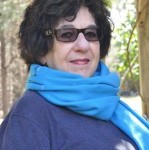“Where are you from?” the friendly stranger waiting for his coffee prepares to ask. I have anticipated his question because I have so often heard it: I can see his brain preparing his lips to frame the words, and I have already prepared my tactics to divert the course of our conversation. It’s not that I’m rude or unfriendly (although sometimes I can be both) and there’s no way for this stranger to understand the weight of his small question. How could he know that I’m not from anywhere? And that to answer him I would have to speak in paragraphs and that his coffee would get cold, his back would ache, while he would be too polite to look at his watch and too timid to suggest we sit down or mention that he would be late for his matinee. But I know that if I did answer his question he would say “I was right, I knew that was an English accent,” or “Wow, such an interesting life” or “You’re so lucky, I’ve never been anywhere” and why would I want to hear that? And so I smile and say I’m from Long Island. Oh, Mattituck–do you know it? Yes, it is, very lovely. And I start walking, my fingers tweeting a friendly goodbye above my head.
I don’t actually know where I’m from. I know where I was born (Lahore) and I know where I grew up and went to school (Pakistan, India, England) and where I later lived (Australia, Israel, America). I know when (1909, 1910) and where (Germany, Poland) my Jewish mother and father were born and I know that both Germany and Poland did not agree that’s where they came from and did not permit them to call their birthplaces “home.” In Italy my parents discovered that even though the University of Rome agreed they had earned their medical degrees and could now refer to themselves as dottore and dottoressa, they would not be permitted to say they were from Italy. In 1937 they came to British India thinking that even though they were refugees they could now be from there. Then I was born but the British, saying we were enemy aliens, disagreed that we were from there and placed our family in internment camps for five years–although when I was eleven years old they gave me a British passport. My parents spoke German and Italian to each other and heavily accented English to my brother and me, and we spoke back to them with an Anglo-Indian accent which grew into American at the missionary school and then, in the British school, into what some today think is British and leads others to ask “Where are you from?” I always want to say I’m from here, there and everywhere but right now I’m here, exactly where you are. // Hazel Kahan
